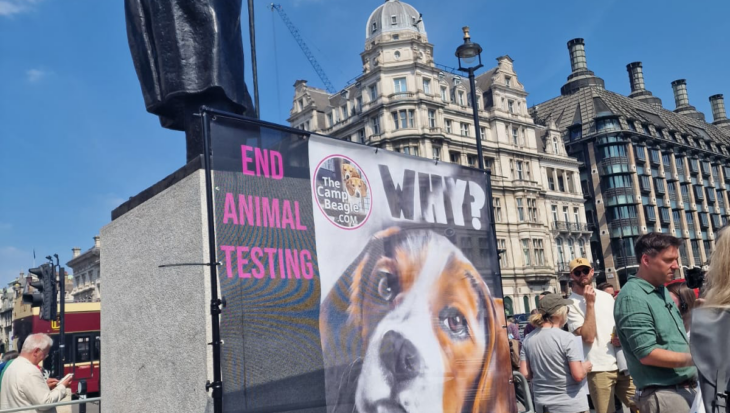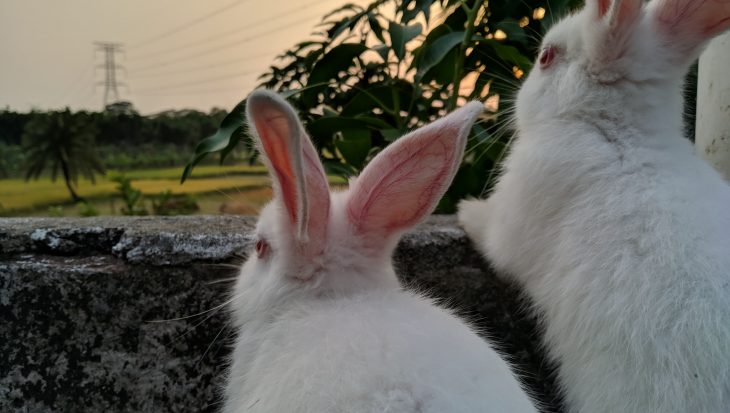The Killing Fields – backed by shocking undercover film – details the staggering growth in recent decades of what is now a major agribusiness. Each year this industry:
- subjects millions of artificially-hatched birds to the rigours of intensive farming, including the liberal use of drugs and painful mutilations in an attempt to limit bird-on bird-aggression caused by the crowded conditions;
- kills nearly 5 million wild birds and mammals with snares, poison and body-crushing traps in predator control programmes;
- dumps 75,000 metric tonnes of toxic lead shot on the countryside.
Around 36 million pheasants are shot and retrieved every year. Birds who are not killed cleanly have their necks broken, or are clubbed over the head. Another 12 million birds suffer crippling blast injuries and are never found. The industry code of practice demands that downed birds be despatched as quickly as possible. But Animal Aid has filmed evidence of injured birds flailing in agony – ignored by those who have brought them down.
Foxes, stoats and weasels are among the species deliberately targeted by gamekeepers, simply because the animals are attracted to such unnaturally large concentrations of birds. But badgers, hedgehogs, sheep, cats and dogs are among the victims of the non-discriminating traps and poison. Even protected birds of prey, such as owls and kestrels, are eliminated.
Said Animal Aid director Andrew Tyler:
“The shooting of pheasants for sport is a uniquely squalid and cowardly activity. Shooters dress up their sick enterprise as ‘conservation’ but our report exposes the devastating impact their so-called sport has on British wildlife.
“The truth is found in the official industry name for their quarry – game birds. It’s all a game to those who factory farm the pheasants – cutting off the ends of their beaks, fixing them with painful clips and blinkers and even tying their wings to control their behaviour. But it’s no game for the animal victims.”
Animal Aid is calling upon the Royal Society for the Protection of Birds to take a stand against shooting pheasants for fun instead of making excuses for the industry. Animal Aid also demands a complete overhaul of the archaic Game Laws, which were implemented largely on behalf of landowners and their gamekeepers and bear little relation to modern conservation needs.
JOHN LEWIS TARGET OF BLOODSPORTS PROTEST
The John Lewis department store group finds itself in the firing line following the publication this week of Animal Aid’s exposé of the pheasant shooting industry.
For 28 days during each each shooting season, the department store group invites its staff to blast pheasants from the sky at its 3000-acre Hampshire estate. Shooting parties ‘bag’ around 200 birds daily. A John Lewis spokesman has admitted to Animal Aid that the estate managers use painful beak clips and plastic blinkers to control the birds’ behaviour inside the rearing units. They also trap and shoot foxes, stoats and weasels to protect their ‘sport’.
Demonstrations are planned at John Lewis stores around the country starting October 7. Hard-hitting posters, leaflets and stickers – carrying the message John Lewis knowingly slaughtering British wildlife – are being widely distributed. The campaign will continue until the store group ends its sick company ‘perk’.
Said Animal Aid director Andrew Tyler:
“John Lewis prides itself in a policy of honest and ethical trading. Thousands of its staff must be as disgusted by the practice as are the majority of the British public. We call upon them to end the slaughter.”
There are John Lewis stores in Aberdeen, Bluewater, Bristol, Cambridge, Cheadle, Edinburgh, Glasgow, High Wycombe, Liverpool, London (Brent Cross, Draycott Avenue, Oxford Street, Kingston, Sloane Square), Milton Keynes, Newcastle, Norwich, Nottingham, Peterborough, Reading, Sheffield, Southampton, Southsea, Watford, Welwyn Garden City, and Windsor
Notes to Editors
- More information from Yvonne Taylor, Andrew Tyler or Kay Holder: 01732 364 546.
- We can supply pheasant-rearing, shooting and trapping images in jpeg format.
- We have an ISDN line for broadcast quality interviews.

